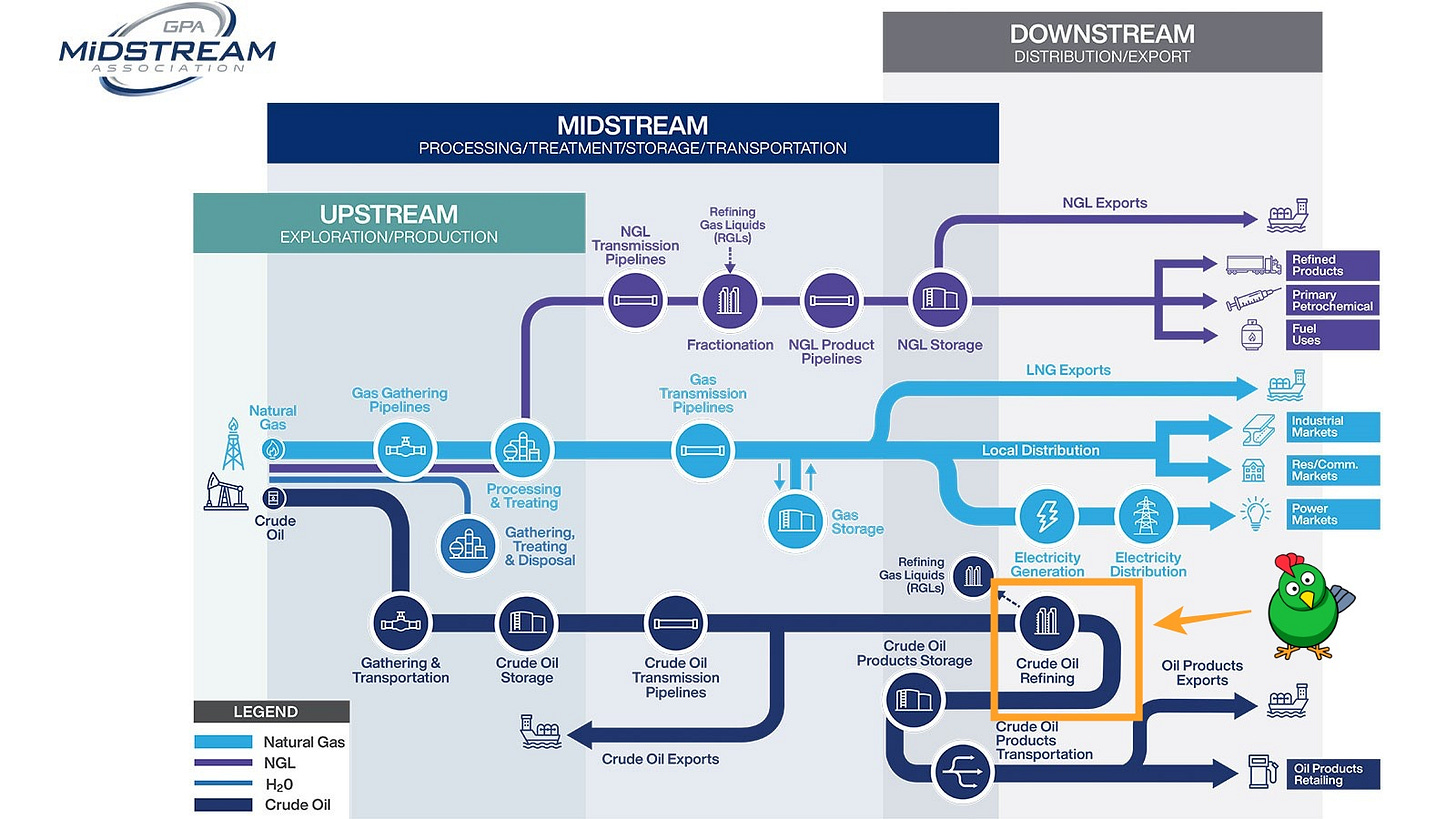“God gives the nuts, but he does not crack them.” – Franz Kafka
The molecular symphony that is the fossil fuel industry powers life, produces critical material goods, and ensures the very survival of the human species. Without the brilliant scientists, engineers, technicians, and field workers who keep these essential products flowing, society would collapse within months. Our political class – a collection of people who have benefited the most from and yet know the least about the hard work that goes on in the space – continues to do its level best to impede and reverse the development of our domestic energy bounty, naively assuming they can jackhammer away at the foundation of the tower they sit atop and somehow be immune from the consequences of its collapse.
Principal among the fossil fuels in its importance is diesel, one of the most abundant products derived from refining a barrel of oil (second to gasoline). Diesel engines are ideal for long-haul truckers and heavy-equipment operators because they provide superior torque at low RPM, critical for pulling heavy loads. Diesel engines are efficient, reliable, and durable. Without the fuel to power these engines, our supply chains would quickly seize up, grocery store shelves would be stripped bare, mining of all critical ores would cease, and riots would soon follow.
An urgent crisis is unfolding in the global supply of diesel – something Bloomberg energy and commodities columnist Javier Blas has been flagging for many months, both on Twitter and in print (emphasis added throughout):
“The dire diesel supply situation predates the Russian invasion of Ukraine. While global oil demand hasn’t yet reached its pre-pandemic level, global diesel consumption surged to a fresh all-time high in the fourth quarter of 2021. The boom reflects the lopsided Covid-19 economic recovery, with transportation demand spiking to ease supply-chain messes.
European refineries have struggled to match this revival in demand. One key reason is pricey natural gas. Refineries use gas to produce hydrogen, which they use to remove sulphur from diesel. The spike in gas prices in late 2021 made that process prohibitively expensive, cutting diesel output.”
Without a doubt, Russia’s invasion of Ukraine was an accelerant, turning years of terrible policies into today’s many catastrophes. It also gave cover for our leaders to externalize the blame for their prior missteps, making it unlikely we will course correct in an intelligent manner any time soon. Tell yourself a lie long enough and you start to believe it.
As we have covered on several occasions, the natural gas crisis in Europe and the supply chain disruptions resulting from our reaction to the Covid-19 pandemic continue to reverberate in seemingly unexpected ways. The diesel shortage is exacerbated by both. To visualize the best path forward, we must appreciate the interconnected nature of integrated chemical processes, the whereabouts of supply chain pinch points, and the complexities of co-product economics.
In their journey from sedimentary rock to the gas tank, the molecules manipulated out of oil and gas are handled, transformed, transported, and otherwise interacted with by dozens of highly specialized companies, many of whom run capital intense, low margin, and highly volatile businesses. There are drillers, oil field services companies, pipeline operators, railroad owners, refiners, distributors, and gas station retailers, just to name a few. A simplified flow diagram follows, and the orange box highlights the origination point of the current diesel price pressure – Crude Oil Refining.:
Suffice it to say, the common assumption by the lay consumer (fed by politicians and pundits) that high prices at the pump result from gouging couldn’t be further from reality. Let’s dig in.






